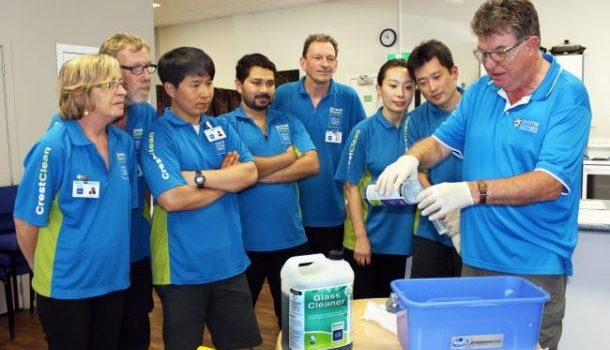
The only way the industry can raise its status is be delivering consistent quality service. To do this we need to provide our frontline staff with qualified and passionate trainers, says Adam Hodge, CEO of the Master Cleaners Training Institute.
Recently I was contacted by Worksafe New Zealand regarding a very worrying case where a young boy was badly burnt following the actions of a cleaner.
The cleaner was attempting to get rid of urine smells in a public toilet and had used boiling water – resulting in the youngster receiving 8 per cent burns.
I believe a lack of training was a major contributing factor to this avoidable incident. Things can go badly wrong when there is an ignorance of the correct, safe processes and procedures of commercial cleaning.
The Worksafe inspector requested information on what professional support there was in the commercial cleaning industry and what safety controls were there in the industry regarding the use of boiling water.
This incident graphically highlights the need for training in our industry. Without that training being delivered, we not only put ourselves at risk of injury or illness but also our customers, their staff and the public.
More and more of our customers are requesting information on the training our personnel receive and the type and content of the training programmes we have in place.

Quality training requires quality trainers
However, while it’s necessary to have quality training programmes, it is equally important to have the correct trainers to deliver the training.
Trainers should have a passion for training, understand the importance of their role, and be properly trained in how to effectively communicate with others who may not have English as a first language.
The mediocre trainer tells people how to do the task; the good trainer explains how to do the task; the superior trainer demonstrates the task, and the great trainer does all of the above but also inspires the trainee.
To ensure our trainers can deliver, we have to give them the tools and the time to produce cleaners who can deliver the quality of service demanded in today’s market place. We have to respect the role of trainer within the organisation and remunerate the trainer in a way that reflects the importance of their role to the organisation.
Training is not about just telling or showing people how to carry out a certain task, training is about the trainer passing on their skills and knowledge to the trainee. It involves, motivation, instruction, demonstration, checking understanding, patience, tact, communication, and a host of other skills
For example, if you just tell people to use a colour coding system without explaining why, without explaining the important role the system has in preventing cross contamination, without explaining what you mean by cross contamination, without explaining the consequences of cross contamination, without checking their understanding, the cleaner is more likely to do their own thing.
Consequently, we are left to deal with all the resulting problems that flow on from that type of behaviour.
To read the full article, view the digital issue of INCLEAN NZ magazine here.